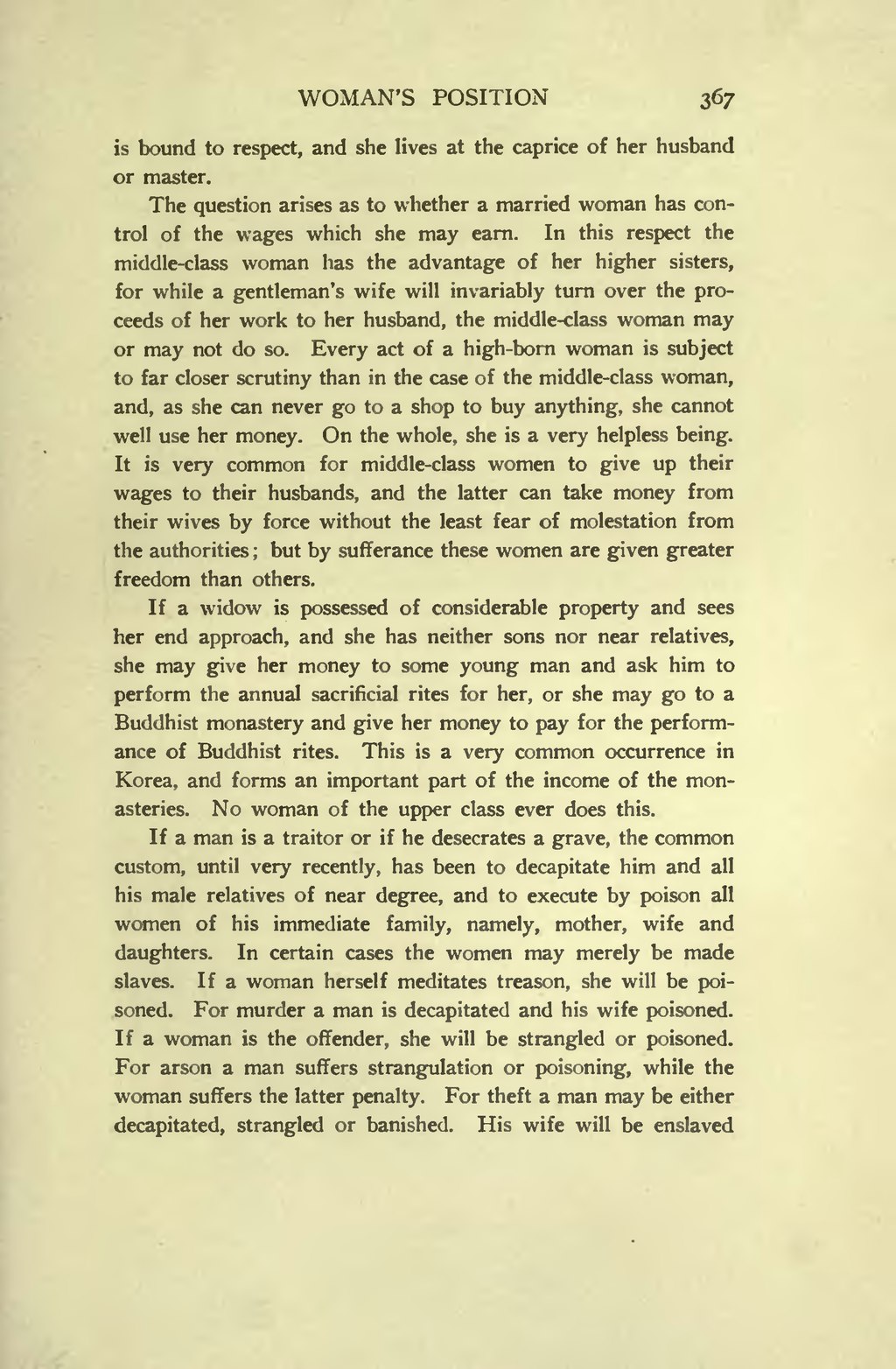is bound to respect, and she lives at the caprice of her husband or master.
The question arises as to whether a married woman has control of the wages which she may earn. In this respect the middle-class woman has the advantage of her higher sisters, for while a gentleman's wife will invariably turn over the proceeds of her work to her husband, the middle-class woman may or may not do so. Every act of a high-born woman is subject to far closer scrutiny than in the case of the middle-class woman, and, as she can never go to a shop to buy anything, she cannot well use her money. On the whole, she is a very helpless being. It is very common for middle-class women to give up their wages to their husbands, and the latter can take money from their wives by force without the least fear of molestation from the authorities ; but by sufferance these women are given greater freedom than others.
If a widow is possessed of considerable property and sees her end approach, and she has neither sons nor near relatives, she may give her money to some young man and ask him to perform the annual sacrificial rites for her, or she may go to a Buddhist monastery and give her money to pay for the performance of Buddhist rites. This is a very common occurrence in Korea, and forms an important part of the income of the monasteries. No woman of the upper class ever does this.
If a man is a traitor or if he desecrates a grave, the common custom, until very recently, has been to decapitate him and all his male relatives of near degree, and to execute by poison all women of his immediate family, namely, mother, wife and daughters. In certain cases the women may merely be made slaves. If a woman herself meditates treason, she will be poisoned. For murder a man is decapitated and his wife poisoned. If a woman is the offender, she will be strangled or poisoned. For arson a man suffers strangulation or poisoning, while the woman suffers the latter penalty. For theft a man may be either decapitated, strangled or banished. His wife will be enslaved
